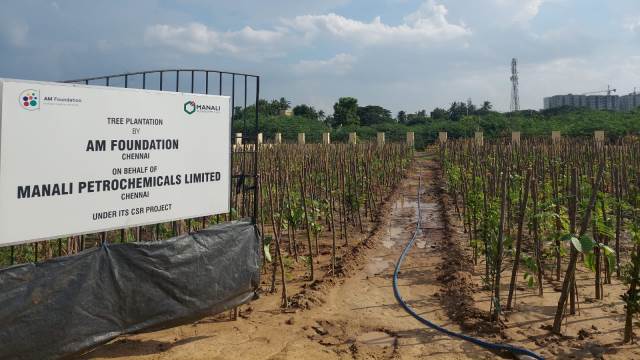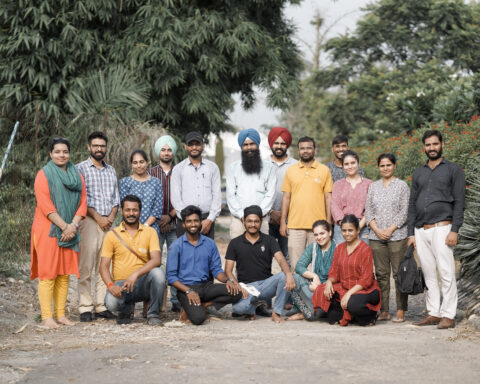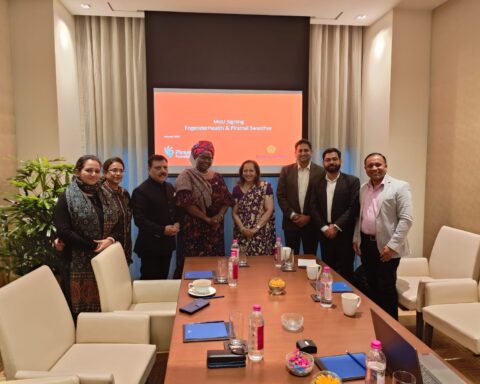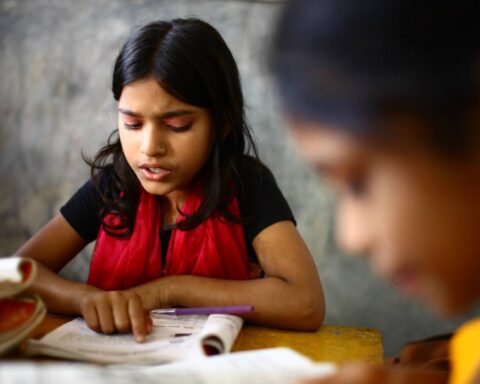To improve the city’s forest cover, Greater Chennai Corporation has teamed with AM Foundation on a Miyawaki technique tree plantation initiative
AM Foundation, the Singapore-based AM International Holdings Pte. Ltd (AMIHcorporate )’s social responsibility arm, recently completed a Miyawaki technique tree plantation initiative surrounding Manali Petrochemicals’ manufacturing sites (MPL). In collaboration with GCC, one of India’s oldest municipal authorities, the project is being conducted as part of MPL’s Corporate Social Responsibility efforts to maintain ecological balance. The Miyawaki approach in Japan necessitates the planting of three or four varieties of native species trees, resulting in a denser forest cover in a shorter amount of time.
India has approved Miyawaki projects in order to achieve the country’s commitment under the Paris Agreement to increase its green cover from 25% to 33%. AM Foundation, the Singapore-based AM International Holdings Pte. Ltd (AMIHcorporate )’s social responsibility arm, recently completed a Miyawaki technique tree plantation initiative surrounding Manali Petrochemicals’ manufacturing sites (MPL). MPL’s CSR initiatives to improve the quality of air, water, and soil for green living include this initiative, which was carried out in collaboration with the Greater Chennai Corporation (GCC).
Various native tree species were planted in Manali New Town’s Zone 2, Ward 15 in Chennai, Tamil Nadu. The tree species were chosen based on the Tamil Nadu Pollution Control Board’s recommendations (TNPCB). “Environmental stewardship is a key priority for us alongside scientific innovation and industrial success,” Mr Ashwin Muthiah, Chairman, AM Foundation & MPL and Founder Chairman, AM International Group, said of the effort. We are cognizant of contributing to a sustainable ecology around our production plants and areas as a responsible corporation.”
The Miyawaki approach is a brilliant way to boost forest cover. It was invented by Akira Miyawaki, a Japanese botanist and plant expert, and entails planting a variety of natural species rather than just one type of plantation. This concept of urban afforestation has been applied in a number of Indian cities, state governments, and local municipalities.





























